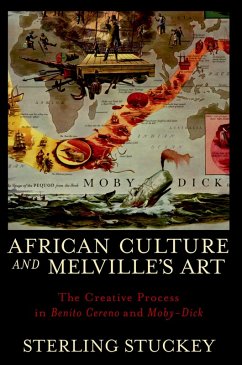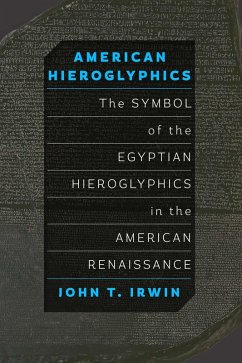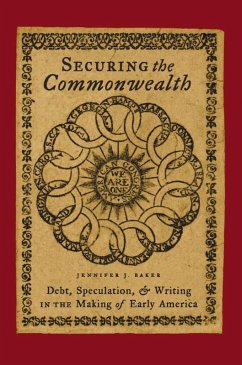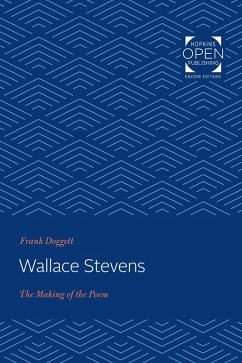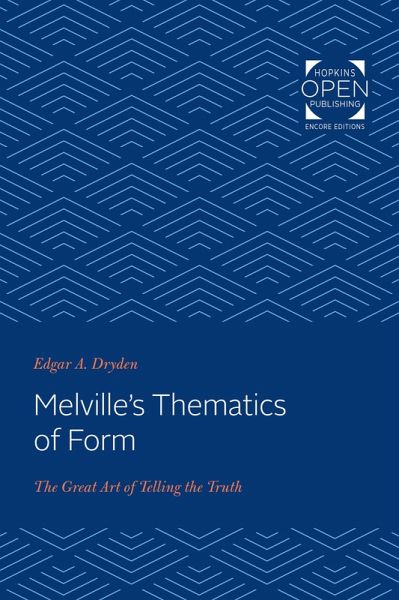
Melville's Thematics of Form (eBook, ePUB)
The Great Art of Telling the Truth

PAYBACK Punkte
12 °P sammeln!
Originally published in 1968. Professor Dryden sees Melville's novels both as metaphysical processes and as technical forms. The novelist is not a reporter but a creator, and what he creates from his experience is his vision of truth. Herman Melville saw the function of the novelist in terms of his ability to expose the reader to truth while simultaneously protecting him from it or, in other words, to enable the reader to experience reality indirectly and, therefore, safely. In Melville's own writing, however, this function became more difficult as his nihilism deepened. He became increasingly...
Originally published in 1968. Professor Dryden sees Melville's novels both as metaphysical processes and as technical forms. The novelist is not a reporter but a creator, and what he creates from his experience is his vision of truth. Herman Melville saw the function of the novelist in terms of his ability to expose the reader to truth while simultaneously protecting him from it or, in other words, to enable the reader to experience reality indirectly and, therefore, safely. In Melville's own writing, however, this function became more difficult as his nihilism deepened. He became increasingly sensitive to his own involvement in the world of lies, and when he could no longer protect himself from the truth, he could no longer transform it into fiction. Melville's struggle to maintain the distinction between art and truth was reflected in the changing forms of his novels.Dryden traces Melville's evolving metaphysical views and studies their impact on the craftsmanship of this acutely self-conscious artist from his early novels-Typee, Redburn, and White Jacket-through Moby-Dick, Pierre, Israel Potter, and The Confidence-Man to the posthumously published Billy Budd and the closely related Benito Cereno, and he concludes that "e;all of Melville's narrators are in some way portraits of the artist at work."e; Dryden's study is a unique contribution to Melville scholarship and an important journey through the world of the novelist's vision. As such, it has significant implications for the novel as a genre and for understanding its development in America.
Dieser Download kann aus rechtlichen Gründen nur mit Rechnungsadresse in A, B, BG, CY, CZ, D, DK, EW, E, FIN, F, GR, HR, H, IRL, I, LT, L, LR, M, NL, PL, P, R, S, SLO, SK ausgeliefert werden.





